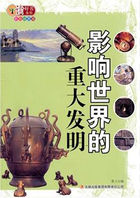After this explanation has been received with triumphant accord, a fresh dissatisfaction begins to steal over the mind of Socrates: Must not friendship be for the sake of some ulterior end? and what can that final cause or end of friendship be, other than the good? But the good is desired by us only as the cure of evil; and therefore if there were no evil there would be no friendship. Some other explanation then has to be devised. May not desire be the source of friendship? And desire is of what a man wants and of what is congenial to him. But then the congenial cannot be the same as the like; for like, as has been already shown, cannot be the friend of like. Nor can the congenial be the good; for good is not the friend of good, as has been also shown. The problem is unsolved, and the three friends, Socrates, Lysis, and Menexenus, are still unable to find out what a friend is.
Thus, as in the Charmides and Laches, and several of the other Dialogues of Plato (compare especially the Protagoras and Theaetetus), no conclusion is arrived at. Socrates maintains his character of a 'know nothing;' but the boys have already learned the lesson which he is unable to teach them, and they are free from the conceit of knowledge. (Compare Chrm.) The dialogue is what would be called in the language of Thrasyllus tentative or inquisitive. The subject is continued in the Phaedrus and Symposium, and treated, with a manifest reference to the Lysis, in the eighth and ninth books of the Nicomachean Ethics of Aristotle. As in other writings of Plato (for example, the Republic), there is a progress from unconscious morality, illustrated by the friendship of the two youths, and also by the sayings of the poets ('who are our fathers in wisdom,' and yet only tell us half the truth, and in this particular instance are not much improved upon by the philosophers), to a more comprehensive notion of friendship. This, however, is far from being cleared of its perplexity. Two notions appear to be struggling or balancing in the mind of Socrates:--First, the sense that friendship arises out of human needs and wants; Secondly, that the higher form or ideal of friendship exists only for the sake of the good.
That friends are not necessarily either like or unlike, is also a truth confirmed by experience. But the use of the terms 'like' or 'good' is too strictly limited; Socrates has allowed himself to be carried away by a sort of eristic or illogical logic against which no definition of friendship would be able to stand. In the course of the argument he makes a distinction between property and accident which is a real contribution to the science of logic. Some higher truths appear through the mist. The manner in which the field of argument is widened, as in the Charmides and Laches by the introduction of the idea of knowledge, so here by the introduction of the good, is deserving of attention. The sense of the inter-dependence of good and evil, and the allusion to the possibility of the non-existence of evil, are also very remarkable.
The dialectical interest is fully sustained by the dramatic accompaniments.
Observe, first, the scene, which is a Greek Palaestra, at a time when a sacrifice is going on, and the Hermaea are in course of celebration; secondly, the 'accustomed irony' of Socrates, who declares, as in the Symposium, that he is ignorant of all other things, but claims to have a knowledge of the mysteries of love. There are likewise several contrasts of character; first of the dry, caustic Ctesippus, of whom Socrates professes a humorous sort of fear, and Hippothales the flighty lover, who murders sleep by bawling out the name of his beloved; there is also a contrast between the false, exaggerated, sentimental love of Hippothales towards Lysis, and the childlike and innocent friendship of the boys with one another. Some difference appears to be intended between the characters of the more talkative Menexenus and the reserved and simple Lysis.
Socrates draws out the latter by a new sort of irony, which is sometimes adopted in talking to children, and consists in asking a leading question which can only be answered in a sense contrary to the intention of the question: 'Your father and mother of course allow you to drive the chariot?' 'No they do not.' When Menexenus returns, the serious dialectic begins. He is described as 'very pugnacious,' and we are thus prepared for the part which a mere youth takes in a difficult argument. But Plato has not forgotten dramatic propriety, and Socrates proposes at last to refer the question to some older person.















